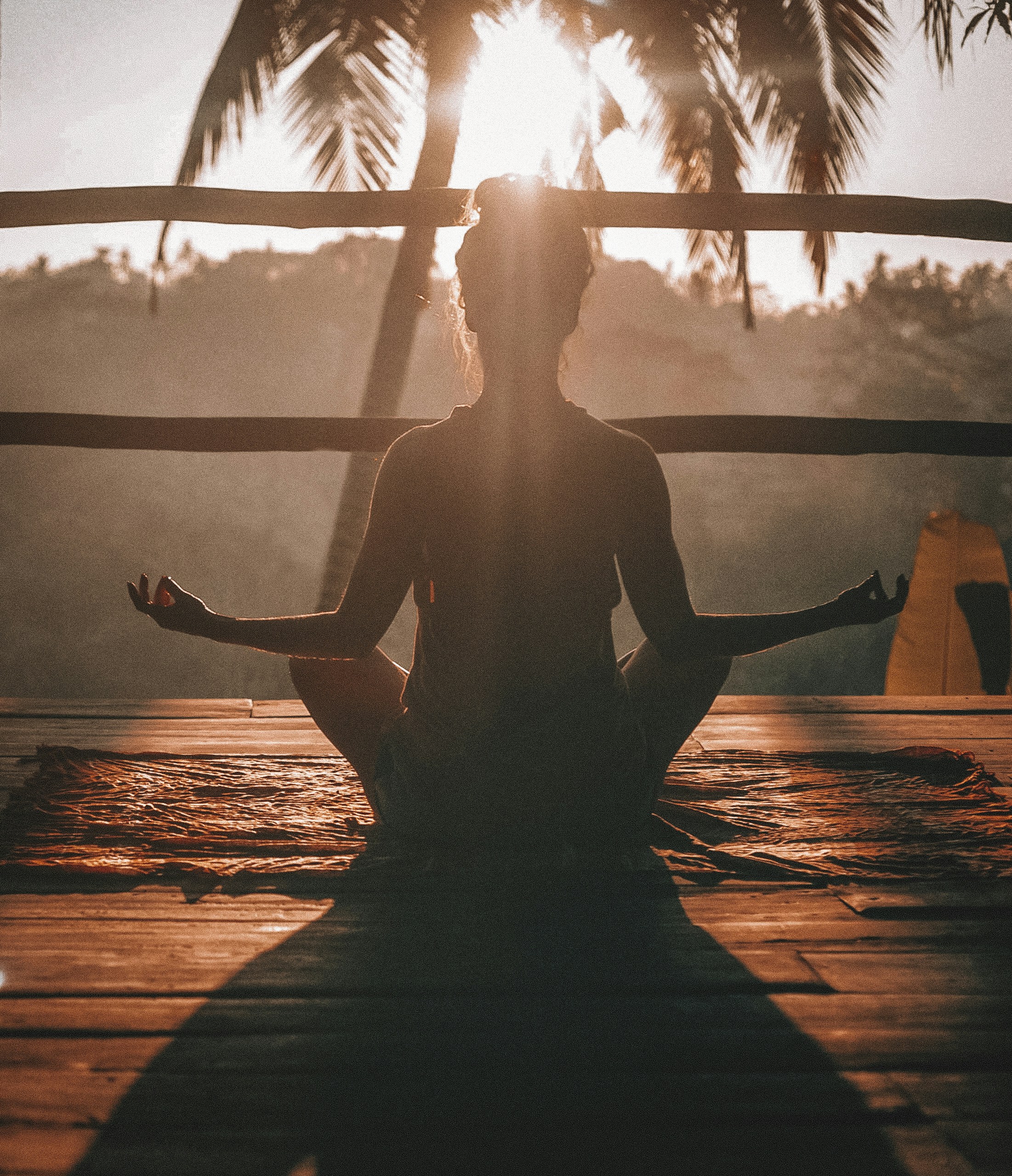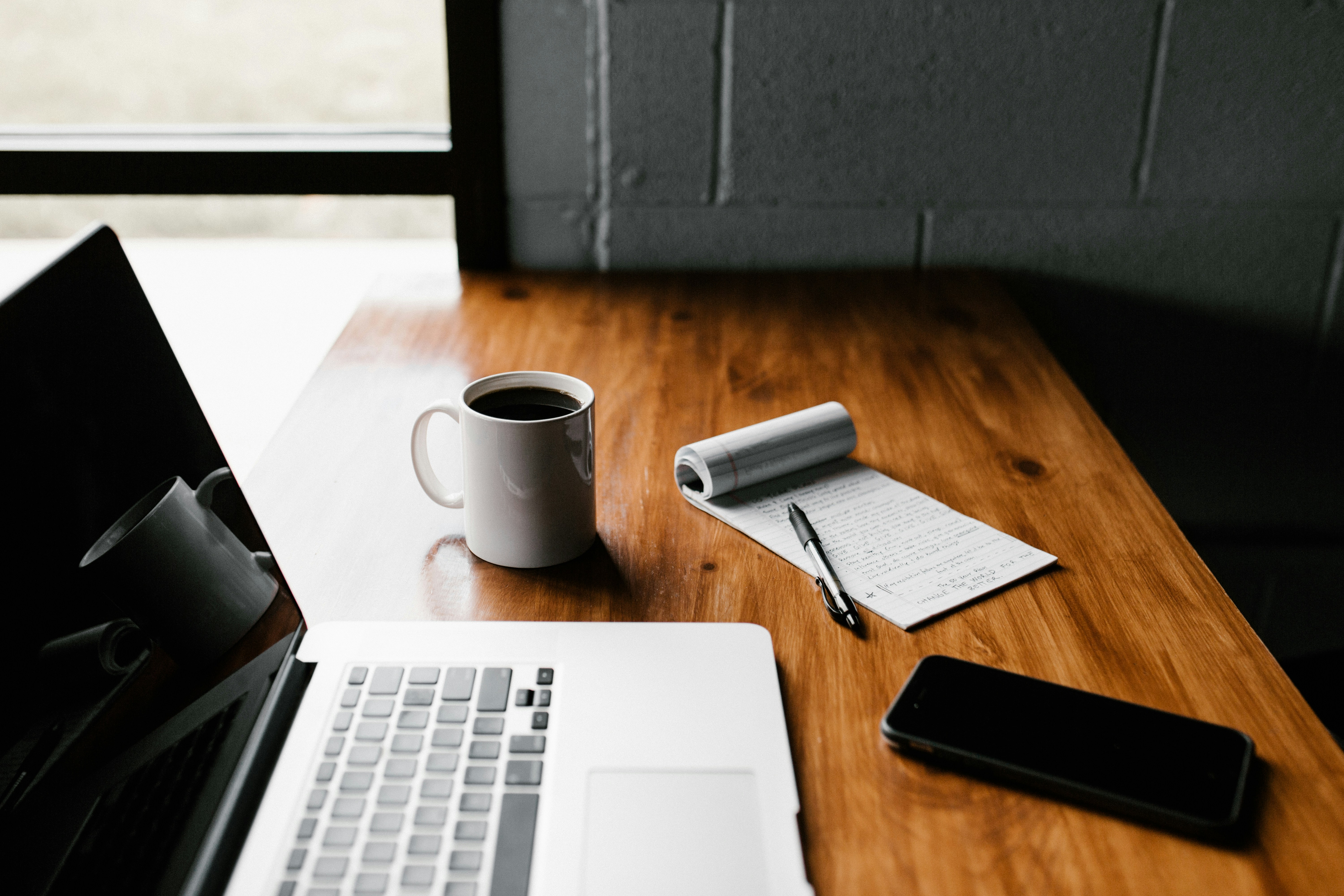Mental Wellness: Practical Strategies for Stress Management and Better Sleep
In today's fast-paced world, mental wellness has emerged as a critical component of overall health. The interconnected challenges of chronic stress and poor sleep affect millions globally, with significant implications for physical health, cognitive function, and quality of life. This comprehensive guide explores evidence-based strategies for managing stress and improving sleep quality, offering practical techniques you can implement immediately to enhance your mental wellbeing.
Understanding the Stress-Sleep Connection

Stress and sleep quality exist in a bidirectional relationship—each significantly impacts the other. Dr. Matthew Walker, Professor of Neuroscience and Psychology at UC Berkeley and author of "Why We Sleep," explains: "Sleep and stress are locked in a reciprocal relationship. Sleep loss increases stress reactivity, while high stress impairs sleep quality, creating a vicious cycle that can be challenging to break."
This relationship is mediated through several physiological mechanisms:
- Cortisol dysregulation: Chronic stress elevates cortisol levels, which should naturally decrease in the evening to facilitate sleep. Persistently high cortisol disrupts this circadian rhythm.
- Hyperarousal: Stress activates the sympathetic nervous system ("fight-or-flight" response), making it difficult to achieve the parasympathetic state ("rest-and-digest") necessary for quality sleep.
- Rumination: Stress often leads to repetitive thought patterns that can persist into the night, delaying sleep onset and disrupting sleep continuity.
- Inflammatory pathways: Both stress and sleep deprivation increase inflammatory markers, creating a physiological environment that perpetuates both problems.
A 2024 meta-analysis published in Sleep Medicine Reviews found that individuals with chronic stress were 2.6 times more likely to experience insomnia, while those with poor sleep quality showed 37% higher cortisol responses to subsequent stressors.
Evidence-Based Stress Management Techniques
Effective stress management involves a multi-faceted approach that addresses both acute stress responses and chronic stress patterns. The following techniques have substantial scientific support:
Mindfulness Meditation

Mindfulness meditation involves paying attention to the present moment with an attitude of openness and non-judgment. This practice has been extensively studied for its stress-reducing effects.
Research highlights:
- A 2025 randomized controlled trial published in JAMA Psychiatry found that an 8-week mindfulness program reduced stress biomarkers by 23% compared to controls.
- Research from Harvard Medical School demonstrated that regular mindfulness practice for 8 weeks produced measurable changes in brain regions associated with stress regulation, including increased gray matter density in the hippocampus and decreased volume in the amygdala.
- A 2024 meta-analysis in Clinical Psychology Review found that mindfulness-based interventions produced moderate to large effects on perceived stress, with benefits maintained at 6-month follow-up.
Practical implementation:
- Start with just 5 minutes daily, gradually increasing to 15-20 minutes
- Use guided meditations from reputable apps like Headspace, Calm, or Insight Timer
- Focus on your breath as an anchor when your mind wanders
- Practice consistently—even short daily sessions are more effective than occasional longer ones
- Consider joining a structured program like Mindfulness-Based Stress Reduction (MBSR) for more comprehensive training
Physical Activity
Regular exercise is one of the most effective stress management tools available, with benefits for both acute stress relief and long-term stress resilience.
Research highlights:
- A 2024 study in Frontiers in Psychiatry found that moderate-intensity exercise reduced cortisol levels by up to 30% for several hours post-exercise.
- Research published in the Journal of Psychiatric Research demonstrated that regular aerobic exercise increased volume in brain regions responsible for stress regulation, including the prefrontal cortex and hippocampus.
- A 2025 meta-analysis in Sports Medicine showed that both aerobic exercise and resistance training significantly reduced symptoms of anxiety and perceived stress across diverse populations.
Practical implementation:
- Aim for at least 150 minutes of moderate-intensity activity weekly (e.g., brisk walking, cycling, swimming)
- Include 2-3 sessions of resistance training weekly
- Consider mind-body exercises like yoga or tai chi, which combine physical activity with mindfulness
- Use exercise strategically during high-stress periods—even a 10-minute walk can provide immediate relief
- Find activities you enjoy to ensure sustainability
Cognitive-Behavioral Techniques
Cognitive-behavioral techniques help identify and modify thought patterns that contribute to stress. These approaches have strong empirical support for stress reduction.
Research highlights:
- A comprehensive 2024 review in Psychological Bulletin found that cognitive restructuring techniques produced significant reductions in perceived stress and physiological stress markers.
- Research from the University of Pennsylvania showed that cognitive-behavioral interventions reduced work-related stress by 45% compared to waitlist controls, with benefits maintained at 12-month follow-up.
- A 2025 study in the Journal of Consulting and Clinical Psychology demonstrated that brief cognitive-behavioral interventions delivered via smartphone apps produced meaningful reductions in stress for individuals with high baseline stress levels.
Practical implementation:
- Thought records: Identify stressful thoughts, evaluate their accuracy, and develop more balanced perspectives
- Worry time: Schedule a specific 15-20 minute period daily to address worries, postponing worry thoughts that arise at other times
- Problem-solving: Break down stressors into manageable components and develop specific action plans
- Cognitive defusion: Practice observing thoughts without automatically accepting them as true
- Self-compassion: Replace self-criticism with kind, understanding self-talk during stressful situations
Social Connection

Human connection provides a powerful buffer against stress through multiple psychological and physiological mechanisms.
Research highlights:
- A landmark 2024 study in Proceedings of the National Academy of Sciences found that strong social connections were associated with lower cortisol reactivity to stressors and faster cortisol recovery.
- Research from UCLA demonstrated that social support activates neural pathways that inhibit stress responses, including reduced activity in the amygdala during stress exposure.
- A 2025 meta-analysis in Health Psychology showed that interventions targeting social connection produced significant reductions in perceived stress and improvements in stress-related health outcomes.
Practical implementation:
- Prioritize regular contact with supportive friends and family
- Consider joining groups based on shared interests or values
- Practice active listening and vulnerability in relationships
- Limit time with individuals who increase your stress levels
- Consider volunteering—helping others has been shown to reduce stress
- Use technology thoughtfully to maintain connections, while being mindful of digital overwhelm
Nature Exposure
Spending time in natural environments has been consistently linked to stress reduction and improved mental wellbeing.
Research highlights:
- A 2024 study in the International Journal of Environmental Research and Public Health found that just 20 minutes in a natural setting reduced salivary cortisol by 21%.
- Research from the University of Edinburgh demonstrated that people living in neighborhoods with more green space had lower levels of perceived stress and showed healthier diurnal cortisol patterns.
- A 2025 systematic review in Environmental Research concluded that nature exposure was associated with reduced neural activity in brain regions linked to rumination and negative affect.
Practical implementation:
- Aim for at least 2 hours weekly in natural settings
- Incorporate brief nature breaks into your workday
- Practice "forest bathing" (mindful immersion in natural environments)
- Bring elements of nature indoors with plants, natural materials, and nature sounds
- Consider "blue spaces" (lakes, rivers, oceans) which may have particularly strong stress-reducing effects
Science-Based Sleep Enhancement Strategies
Quality sleep is fundamental to stress resilience, cognitive function, and overall health. The following evidence-based strategies can help improve various aspects of sleep:
Sleep Hygiene Optimization

Sleep hygiene refers to behaviors and environmental factors that influence sleep quality. Optimizing these elements creates a foundation for better sleep.
Research highlights:
- A 2024 study in Sleep Health found that adherence to sleep hygiene recommendations was associated with 42% lower odds of insomnia symptoms and 37% lower odds of daytime sleepiness.
- Research from the National Sleep Foundation demonstrated that environmental factors like bedroom temperature, noise, and light can affect sleep architecture, particularly slow-wave sleep and REM sleep.
- A 2025 randomized controlled trial published in the Journal of Sleep Research showed that a comprehensive sleep hygiene intervention improved sleep efficiency by 12% and reduced sleep onset latency by 14 minutes.
Practical implementation:
- Consistent schedule: Go to bed and wake up at approximately the same times daily, even on weekends
- Optimal environment: Keep your bedroom dark, quiet, and cool (65-68°F or 18-20°C)
- Comfortable bedding: Invest in a supportive mattress and pillows appropriate for your sleep position
- Electronic curfew: Avoid screens for at least 30-60 minutes before bedtime
- Mindful consumption: Limit caffeine after midday, avoid large meals within 2-3 hours of bedtime, and moderate alcohol use (which disrupts sleep architecture)
- Relaxing routine: Develop a consistent pre-sleep routine that signals to your body it's time to wind down
Cognitive Behavioral Therapy for Insomnia (CBT-I)
CBT-I is considered the gold standard treatment for chronic insomnia, with stronger evidence and fewer side effects than sleep medications.
Research highlights:
- A 2024 meta-analysis in the Journal of the American Medical Association found that CBT-I produced large improvements in sleep onset latency, wake time after sleep onset, and sleep efficiency, with benefits maintained at 12-month follow-up.
- Research from the University of Pennsylvania showed that CBT-I was more effective than sleep medication for insomnia in the long term, with 68% of participants achieving remission compared to 42% in the medication group.
- A 2025 study in Sleep Medicine demonstrated that digital CBT-I applications produced clinically significant improvements in 65% of users with insomnia symptoms.
Key components of CBT-I:
- Stimulus control: Strengthening the association between bed and sleep by only using your bed for sleep and intimacy
- Sleep restriction: Temporarily limiting time in bed to match actual sleep time, then gradually increasing as sleep efficiency improves
- Cognitive restructuring: Identifying and challenging unhelpful beliefs about sleep
- Relaxation training: Learning techniques to reduce physical and mental arousal at bedtime
- Sleep hygiene education: Implementing behaviors that promote quality sleep
While working with a CBT-I specialist is ideal, digital applications like Sleepio, Somryst, and CBT-i Coach offer evidence-based alternatives.
Relaxation Techniques for Sleep
Specific relaxation practices can help reduce pre-sleep arousal and facilitate the transition to sleep.
Research highlights:
- A 2024 systematic review in Sleep Medicine Reviews found that progressive muscle relaxation reduced sleep onset latency by an average of 15 minutes and improved subjective sleep quality.
- Research from the University of Arizona demonstrated that diaphragmatic breathing exercises performed before bedtime increased parasympathetic activity and improved multiple sleep parameters.
- A 2025 randomized controlled trial published in Behavioral Sleep Medicine showed that body scan meditation improved sleep quality and reduced pre-sleep cognitive arousal in people with insomnia symptoms.
Effective techniques:
- Progressive muscle relaxation: Systematically tensing and releasing muscle groups to reduce physical tension
- Diaphragmatic breathing: Slow, deep breathing from the diaphragm, often using the 4-7-8 method (inhale for 4 counts, hold for 7, exhale for 8)
- Body scan meditation: Bringing attention sequentially to different parts of the body while releasing tension
- Guided imagery: Visualizing peaceful scenes or experiences to promote relaxation
- Autogenic training: Using self-suggestions to induce feelings of warmth and heaviness in the body
Chronotherapy Approaches
Chronotherapy involves manipulating environmental cues that regulate circadian rhythms to improve sleep timing and quality.
Research highlights:
- A 2024 study in the Journal of Biological Rhythms found that timed light exposure significantly improved sleep timing and quality in people with delayed sleep phase syndrome.
- Research from Harvard Medical School demonstrated that properly timed light exposure could shift circadian rhythms by up to 3 hours within several days.
- A 2025 meta-analysis in Chronobiology International showed that morning light therapy improved sleep onset latency and sleep quality in people with insomnia and circadian rhythm disorders.
Practical implementation:
- Morning light exposure: Get 15-30 minutes of bright light (preferably natural sunlight) within an hour of waking
- Evening light management: Reduce exposure to blue light from screens and bright indoor lighting in the 2-3 hours before bedtime
- Light therapy devices: Consider using a light therapy box (10,000 lux) for 20-30 minutes in the morning, especially during winter months or if natural light exposure is limited
- Blue-light blocking glasses: Wear these in the evening if screen use is unavoidable
- Consistent meal timing: Eat meals at regular times to reinforce circadian rhythms
Nutritional Approaches to Better Sleep

Certain dietary patterns and specific nutrients can influence sleep quality and duration.
Research highlights:
- A 2024 study in the American Journal of Clinical Nutrition found that adherence to a Mediterranean dietary pattern was associated with better sleep quality and fewer insomnia symptoms.
- Research from Tufts University demonstrated that low fiber and high saturated fat and sugar intake were associated with lighter, less restorative sleep.
- A 2025 randomized controlled trial published in Sleep showed that kiwifruit consumption (2 fruits daily for 4 weeks) improved sleep onset, duration, and efficiency in adults with sleep disturbances.
Evidence-based recommendations:
- Mediterranean-style diet: Emphasize fruits, vegetables, whole grains, lean proteins, and healthy fats
- Tryptophan-rich foods: Include sources like turkey, chicken, eggs, cheese, tofu, and legumes, which provide the precursor to melatonin
- Magnesium-rich foods: Incorporate dark leafy greens, nuts, seeds, and whole grains, as magnesium plays a role in sleep regulation
- Melatonin-containing foods: Consider tart cherries, kiwifruit, and milk, which naturally contain small amounts of melatonin or its precursors
- Timing considerations: Avoid large meals within 2-3 hours of bedtime, but a small, balanced snack may help prevent hunger disruptions
Integrating Stress Management and Sleep Improvement
Given the bidirectional relationship between stress and sleep, an integrated approach that addresses both simultaneously often yields the best results. Here are strategies that target this interconnection:
Daily Stress-Sleep Journal
Tracking both stress levels and sleep patterns can reveal connections and guide interventions.
Implementation:
- Record daily stress levels (1-10 scale) and potential triggers
- Track sleep parameters (bedtime, wake time, estimated sleep quality)
- Note stress management techniques used and their effectiveness
- Review weekly to identify patterns and adjust strategies accordingly
Buffer Zone Between Work and Sleep
Creating a transition period between daily demands and sleep time helps reduce cognitive and emotional arousal.
Implementation:
- Establish a 1-2 hour "buffer zone" before bedtime
- Use this time for relaxing activities (reading, gentle stretching, listening to music)
- Avoid work-related activities, news consumption, or stimulating content
- Practice a "worry dump" by writing down concerns to address tomorrow
- Engage in a brief gratitude practice to shift focus from stressors to positive aspects of life
Mindful Technology Use

Digital devices can both increase stress and disrupt sleep through multiple mechanisms.
Implementation:
- Establish technology boundaries (e.g., no work emails after 8 PM)
- Create device-free zones, particularly the bedroom
- Use "do not disturb" settings during sleep hours
- Consider a digital sunset routine, gradually reducing screen use as bedtime approaches
- Use technology mindfully for stress reduction (meditation apps, nature sounds) rather than stimulation
Mind-Body Practices
Certain practices effectively address both stress and sleep through their effects on the autonomic nervous system.
Research highlights:
- A 2025 study in JAMA Network Open found that yoga practice (3 sessions weekly for 12 weeks) improved both perceived stress and multiple sleep parameters in adults with chronic insomnia.
- Research from the University of California showed that tai chi practice reduced stress biomarkers and improved sleep efficiency in older adults.
- A 2024 meta-analysis in Complementary Therapies in Medicine demonstrated that regular qigong practice had moderate to large effects on both stress reduction and sleep quality improvement.
Implementation options:
- Gentle yoga: Particularly restorative or yin styles in the evening
- Tai chi: Slow, flowing movements combined with mindful breathing
- Qigong: Ancient Chinese practice involving coordinated movements, breathing, and awareness
- Yoga nidra: "Yogic sleep" meditation practice that induces deep relaxation while maintaining awareness
Special Considerations for Different Life Stages and Situations
Stress management and sleep needs vary across the lifespan and in different circumstances. Here are tailored approaches for specific situations:
Workplace Stress and Sleep
Work-related stress is a primary contributor to sleep problems for many adults.
Targeted strategies:
- Establish clear boundaries between work and personal time
- Take regular breaks during the workday to prevent stress accumulation
- Practice strategic worry time for work concerns before leaving the office
- Consider a post-work transition ritual to mentally disconnect
- Use vacation time strategically to prevent burnout
- Address workplace stressors directly when possible
Parenting and Caregiving
Those caring for others face unique stress and sleep challenges.
Targeted strategies:
- Prioritize sleep when possible, even if in shorter segments
- Practice "sleep banking" by getting extra rest when opportunities arise
- Share caregiving responsibilities when possible
- Use relaxation techniques that can be practiced in brief moments
- Connect with others in similar situations for emotional support
- Consider professional support when caregiving demands are overwhelming
Stress and Sleep During Major Life Transitions
Life changes like moving, changing jobs, or relationship transitions often disrupt both stress levels and sleep patterns.
Targeted strategies:
- Maintain sleep routines as much as possible during transitions
- Create a portable sleep environment with familiar elements
- Practice acceptance of temporary sleep disruptions while working to minimize them
- Use structured problem-solving for transition-related stressors
- Increase self-care practices during major transitions
Aging and Sleep
Sleep architecture naturally changes with age, requiring adaptive approaches.
Targeted strategies:
- Adjust sleep expectations to align with age-related changes
- Increase daytime physical activity and natural light exposure
- Address age-specific sleep disruptors (e.g., nocturia, pain, medications)
- Consider a sleep study if sleep quality significantly deteriorates
- Be cautious with sleep medications, which often have greater risks in older adults
When to Seek Professional Help
While self-help strategies are effective for many, professional support is appropriate in certain circumstances:
- For stress management: Consider professional help if stress significantly impairs daily functioning, relationships, or health; if you experience panic attacks or trauma symptoms; or if stress is accompanied by persistent low mood or thoughts of self-harm.
- For sleep issues: Seek professional evaluation if you experience chronic insomnia (difficulty sleeping at least 3 nights weekly for 3+ months); excessive daytime sleepiness despite adequate sleep opportunity; symptoms of sleep disorders like sleep apnea or restless legs syndrome; or if sleep problems occur alongside other health concerns.
Options for professional support include:
- Primary care physicians
- Mental health professionals (psychologists, psychiatrists, licensed therapists)
- Sleep specialists and sleep clinics
- Integrative medicine practitioners
- Workplace employee assistance programs
Conclusion: Building a Personalized Stress-Sleep Management Plan
Effective management of stress and sleep requires a personalized approach that addresses your unique challenges, preferences, and circumstances. Consider these steps to develop your plan:
- Assess your current situation: Identify your primary stress triggers and sleep disruptors
- Set realistic goals: Define what improved stress management and sleep would look like for you
- Start small: Choose 1-2 strategies from this guide to implement initially
- Track your progress: Monitor changes in stress levels and sleep patterns
- Adjust as needed: Modify your approach based on what works for you
- Build gradually: Add new strategies as initial ones become habitual
- Practice self-compassion: Recognize that perfect stress management and sleep are unrealistic goals
Remember that improvements in stress management and sleep quality often develop gradually. Consistency with evidence-based practices, rather than perfection, is the key to long-term benefits for your mental wellness and overall health.
As sleep researcher Dr. Meir Kryger notes, "Sleep is the golden chain that ties health and our bodies together." By addressing the interconnected challenges of stress and sleep, you're investing not just in better nights, but in healthier, more fulfilling days.
References
- Sleep Medicine Reviews. (2024). "Bidirectional relationships between stress and sleep: A meta-analysis."
- JAMA Psychiatry. (2025). "Effects of mindfulness training on stress biomarkers: A randomized controlled trial."
- Clinical Psychology Review. (2024). "Mindfulness-based interventions for stress reduction: A meta-analysis."
- Frontiers in Psychiatry. (2024). "Exercise effects on cortisol dynamics and stress regulation."
- Sports Medicine. (2025). "Exercise interventions for anxiety and stress: A meta-analysis."
- Psychological Bulletin. (2024). "Cognitive-behavioral techniques for stress management: A comprehensive review."
- Proceedings of the National Academy of Sciences. (2024). "Social connections and physiological stress responses."
- International Journal of Environmental Research and Public Health. (2024). "Nature exposure and cortisol responses."
- Sleep Health. (2024). "Sleep hygiene practices and insomnia symptoms in a community sample."
- Journal of Sleep Research. (2025). "Effects of a comprehensive sleep hygiene intervention on sleep parameters."
- Journal of the American Medical Association. (2024). "Cognitive behavioral therapy for insomnia: A meta-analysis."
- Sleep Medicine Reviews. (2024). "Relaxation techniques for improving sleep: A systematic review."
- Journal of Biological Rhythms. (2024). "Light exposure and circadian rhythm regulation in delayed sleep phase syndrome."
- American Journal of Clinical Nutrition. (2024). "Mediterranean diet adherence and sleep quality."
- JAMA Network Open. (2025). "Effects of yoga practice on stress and sleep in adults with chronic insomnia."
- Complementary Therapies in Medicine. (2024). "Qigong for stress reduction and sleep improvement: A meta-analysis."





0 Comments